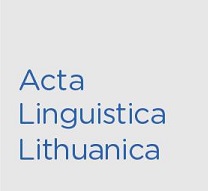Of Mice and Men: PETA’s Animal-Friendly Idioms as a Strategy Against Speciesism?
Of Mice and Men: PETA’s Animal-Friendly Idioms as a Strategy Against Speciesism?
Author(s): Olena FomenkoSubject(s): Language studies, Applied Linguistics, Lexis, Semantics
Published by: Lietuvių Kalbos Institutas
Keywords: speciesism; PETA; animal-friendly idioms; linguistic discrimination; critical discourse analysis; applied linguistics;
Summary/Abstract: Language shapes our understanding of animals and can influence social attitudes and behaviors toward them. Despite the progress in animal welfare, the English language continues to perpetuate prejudice against animals that can justify violence against them. To combat linguistic speciesism and promote non-discriminatory language, People for the Ethical Treatment of Animals (PETA) proposed animal-friendly alternatives to replace speciesist idioms. Examples of these alternatives include feed two birds with one scone and bring home the bagels, suggested instead of kill two birds with one stone and bring home the bacon. This study uses linguistic and critical discourse analyses to examine the corpus of 166 words and phrases comprising original and animal-friendly idioms. The study objective is to assess the potential of PETA’s alternative expressions to replace discriminatory language. The paper argues that while some animal-friendly alternatives might gain public acceptance, others may be too unfamiliar or contrived to be widely adopted. Additionally, these expressions could backfire and undermine the animal rights movement by making it appear radical or out-of-touch. Despite the limitations, PETA’s campaign has the potential to raise awareness about speciesism in the English language and promote non-discriminatory language use in applied linguistics, especially among young learners and non-native English speakers.
Journal: Acta Linguistica Lithuanica
- Issue Year: 2023
- Issue No: 88
- Page Range: 165-180
- Page Count: 16
- Language: English

